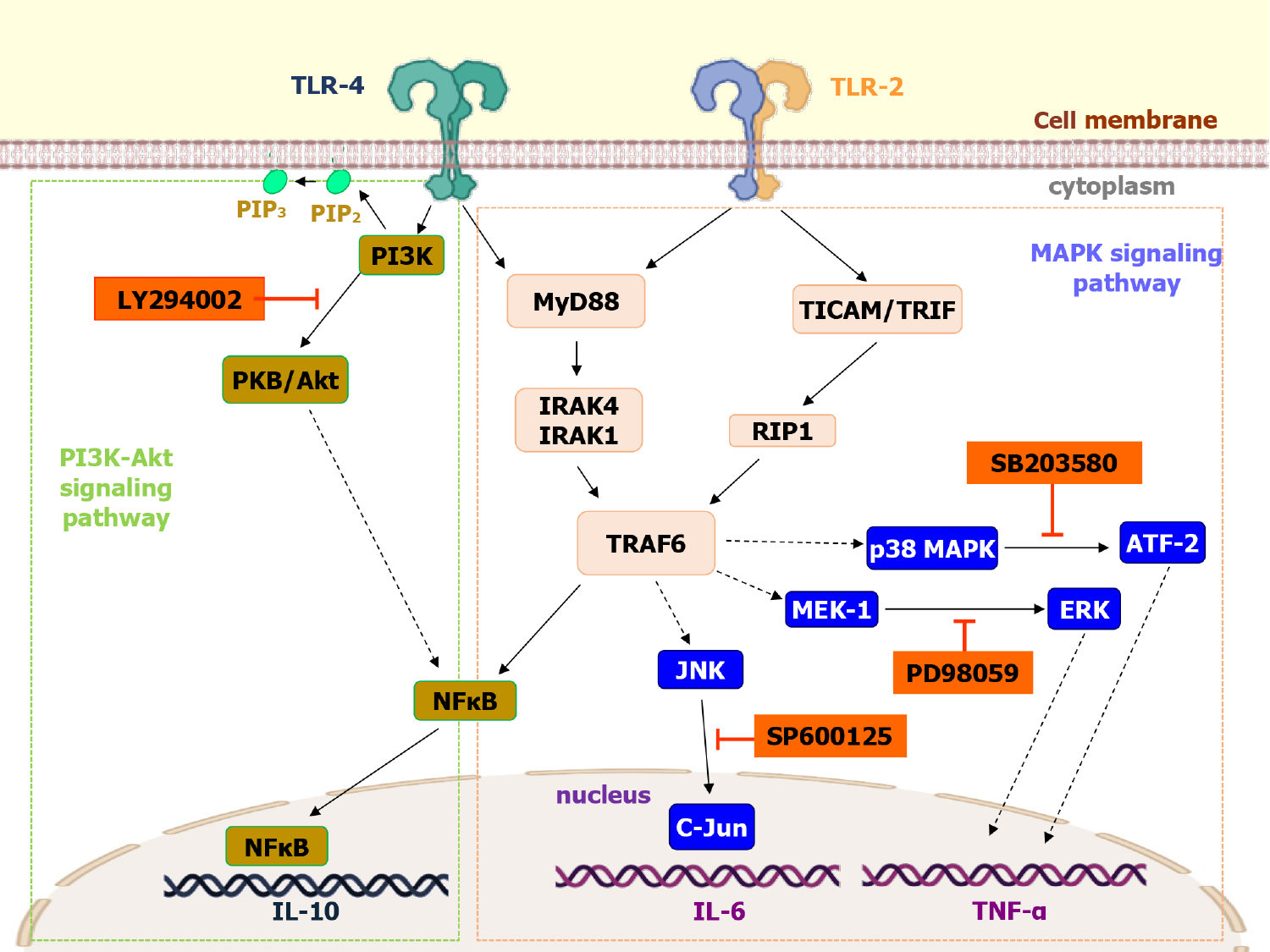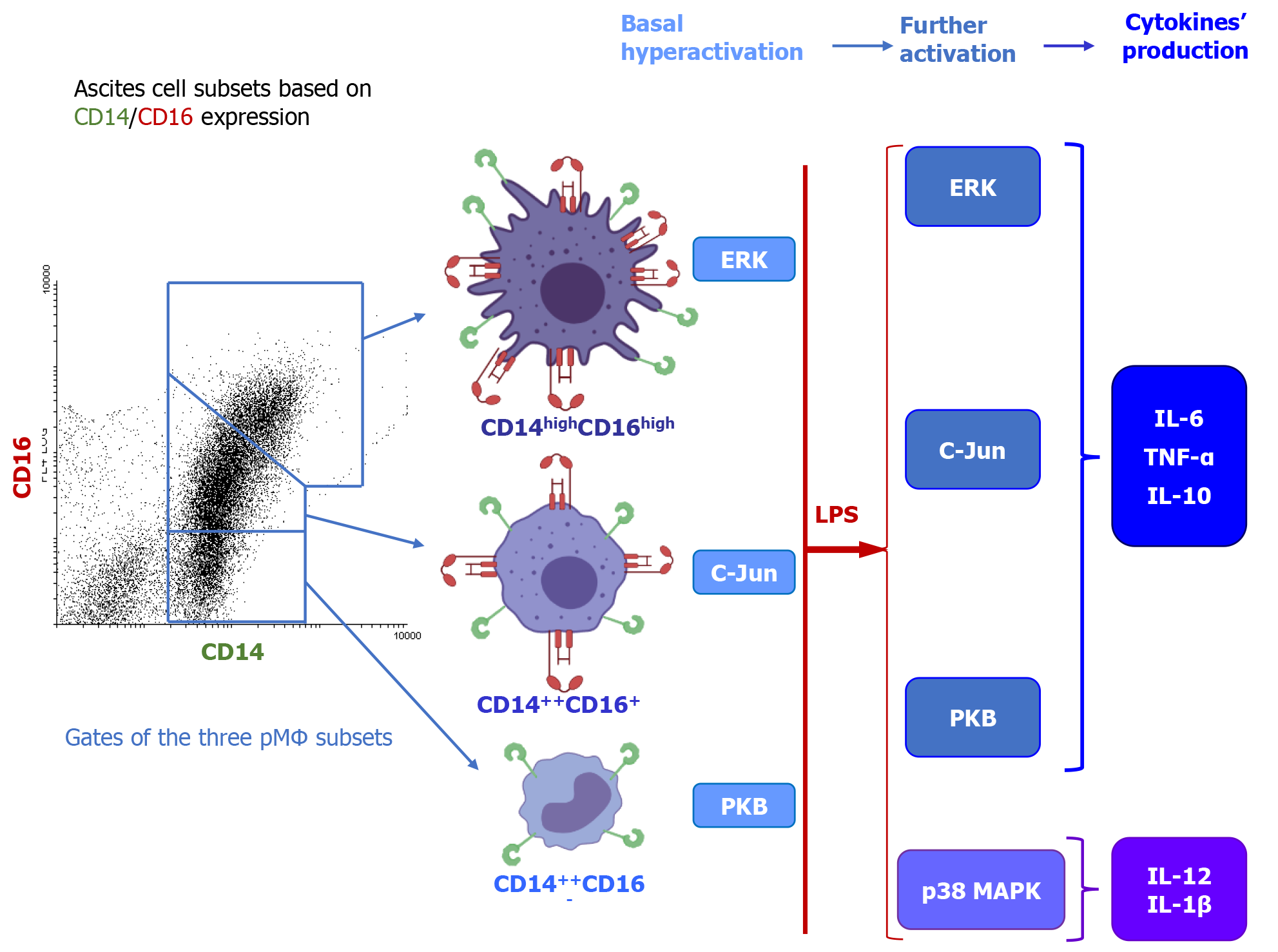Copyright
©The Author(s) 2021.
World J Gastroenterol. Nov 7, 2021; 27(41): 7014-7024
Published online Nov 7, 2021. doi: 10.3748/wjg.v27.i41.7014
Published online Nov 7, 2021. doi: 10.3748/wjg.v27.i41.7014
Figure 1 Pilar García-Peñarrubia, MD, PhD is a Professor in the Departments of Biochemistry and Molecular Biology B and Immunology in the School of Medicine, at the University of Murcia, Spain.
She received her MD degree from the School of Medicine in the University of Murcia, Spain in 1975. She certified as MD specialist in Microbiology and Parasitology in 1980. She received her PhD degree from the School of Medicine in the University of Murcia, Spain in 1979 with honor “cum laude”. From 1986 to 1989 she was a Research Associate with the Department of Medicine, School of Medicine, University of New Mexico, Albuquerque, United States, and a Fellow of the Fulbright Foundation (1986-1987). She was Vice Dean of the School of Medicine (University of Murcia) since 1999 to 2002. Her subjects of interests include the immunopathology of hepatic cirrhosis and endometriosis, the physiology of human NK cells and peritoneal macrophages, and theoretical models of biological systems, especially the immune system.
Figure 2 TLR4 and TLR2 cell signaling pathways in normal subjects.
TLR2 and TLR4 engagement induce activation of PKB-Akt and MAPK intracellular signaling pathways leading to the phosphorylation of several molecules, which control the expression levels of pro- and anti-inflammatory cytokines. The targets of PD98059, SB203580, SP600125, and LY294002 inhibitors (orange boxes) are indicated by dashed arrows. Adapted from Tapia-Abellán et al[51] with permission from John Wiley and Sons, Inc. Citation: Tapia-Abellán A, Ruiz-Alcaraz AJ, Hernández-Caselles T, Such J, Francés R, García-Peñarrubia P, Martínez-Esparza M. Role of MAP kinases and PI3K-Akt on the cytokine inflammatory profile of peritoneal macrophages from the ascites of cirrhotic patients. Liver Int 2013; 33: 552-560. Copyright© John Wiley and Sons, Inc.
Figure 3 Peritoneal macrophage subsets from cirrhotic patients.
The ascitic fluid of cirrhotic patients presents three different subpopulations of peritoneal macrophages based on their cell morphology and CD14/CD16 expression. Baseline hyperactivation of ERK and JNK/c-Jun signaling routes detected in ascites peritoneal macrophage (pMϕ) correlates with CD14/CD16 high expressing subsets, whereas PI3K/PKB correlated with the CD16 low expressing cells. In vitro treatment with LPS drastically increases PKB/Akt, ERK1/2, and c-Jun activation, whereas the corresponding p38 MAPK is lowered in pMϕ from ascites cells compared to monocyte-derived macrophages (M-DM) from the control blood. In vitro LPS-activated macrophages from cirrhotic ascites also produce statistically higher levels of TNF-α, IL-6, and IL-10, as well as lower levels of IL-1β and IL-12 than the control blood M-DM. Adapted from Ruiz-Alcaraz et al[44] with permission from Elsevier. Citation: Ruiz-Alcaraz AJ, Tapia-Abellán A, Fernández-Fernández MD, Tristán-Manzano M, Hernández-Caselles T, Sánchez-Velasco E, Miras-López M, Martínez-Esparza M, García-Peñarrubia P. A novel CD14(high) CD16(high) subset of peritoneal macrophages from cirrhotic patients is associated to an increased response to LPS. Mol Immunol 2016; 72: 28-36. Copyright© Elsevier.
- Citation: García-Peñarrubia P, Ruiz-Alcaraz AJ, Ruiz-Ballester M, Ramírez-Pávez TN, Martínez-Esparza M. Recent insights into the characteristics and role of peritoneal macrophages from ascites of cirrhotic patients. World J Gastroenterol 2021; 27(41): 7014-7024
- URL: https://www.wjgnet.com/1007-9327/full/v27/i41/7014.htm
- DOI: https://dx.doi.org/10.3748/wjg.v27.i41.7014











